Tamkhulu rocks his rickety chair all night and smokes his Dagga pipe in the house and rambles or whistles.
At times, he listens to the voices on TV and comments on their appearances—either extolling their beauty or condemning their ugliness.
At midnight, I wake up and switch on the radio, and then I hear him shouting from the next room that I’m interrupting his conversation. I hear his footsteps approaching my room. I pull the blanket up and cover my head and feign sleep when I hear his violent knocks on my door. After ten minutes, he pushes the door open and flicks the light on. He prods and shakes my body, slaps my head, tickles my feet, and screams into my right ear that he wants to go to the bush. Maybe this is what the muti man told him to do. The dagga and beer in me wants to kick the blanket off and shout, “voetsek Tamkhulu!,” but I decide against it. This is his house, this bed, these bedclothes. I don’t know any other people in this fearful township who would offer me a place to live without paying a cent.
My eyes are slightly open like slits. Tamkhulu is now standing over my head, crying and hiccupping. His entire body is stricken with convulsions. I pity this poor old man. I rise from bed and get dressed. I hate nights like these when I have to walk him into the bush without my torchlight. The batteries are dead. The responsibility of ensuring he’s relieved has become mine ever since we buried Miriam. That was last week Saturday. At the funeral he cried so hard that everybody thought he was not going to make it home.
Tamkhulu’s cry is excruciating. “My wife, oh my wife,” he exclaims in isiXhosa, as he limps behind me to the front door. “Do you hear my wife, son of my daughter, do you hear her?”
I disentangle my shoulder from his grip, open the front door and step out the house. It is misty. The distant and vague moon resembles the rotund face of Miriam. He doesn’t notice this revelation. Tamkhulu is partially blind, a consequence of years of blacksmithing without safety gear.
Dogs howl endlessly from a distance. On the cracked pavement, a dog is gasping for air. It wears a woebegone face. My eyes rove. There’s a hooting owl perching on a lamppost. Three weeks ago, it was a bat perching on this streetlight, and it had made an ominous noise, as soon as it recognized my face. My heart throbs, but the throbbing is worse than last week’s, when, at Miriam’s funeral, a black blanket of bats appeared and disappeared with people’s hairs. Great luck for the few women who were wearing wigs and hats and head wraps.
Behind me, Tamkhulu trips and falls on his face. I chuckle. When I reminded him to bring his walking, stick he refused and scorned me. I help him to his feet. His white shorts are now dirtied with mud, and he has bruises on his elbows and knees. He mutters something about an old man’s grave being on the roadside. “She’s calling me. She’s calling me into the bush.” When his wife was still alive he’d often say to me that there’s no sorrow in sleep. But each night I dream I’m sad and sulking and wandering into the wilderness, and his voice behind me rings like a siren fucking up my eardrums.
As we pass the ZCC building, we hear hoarse voices and the sound of stamping feet. Cars drive by and stark white eyes dissect us. I imagine them thinking we are mental cases escaped from a psychiatric Hospital. I rush my steps. Tamkhulu struggles behind me like a snail, and his pace is making me panic. This late in the night, the bush is filled with noises of baboons beating their chests and cats crying like children.
I drag Tamkhulu along. We soon find a plain field in this bush. The field has patches of green grass. And just near a giant aloe tree, a group of fireflies light up that part. It’s an invitation to a safe place for Tamkhulu to relieve himself. I sit Tamkhulu there. He takes his shorts off. The earth is soft as loam. He digs a hole in the earth with his fingers. The hole appears as though it would fit his round ass. He places a handful of his grey hair into it. He drops down and begins to push kak out of his ass. Some crickets and cicadas shriek from somewhere and I suddenly think of blaring trumpets as I realize that Tamkhulu is squatting near Angel’s trumpets and that they are glowing in the moonlight.
I leave Tamkhulu and decide to relieve myself elsewhere. I find a plain and grassless field. I squat with my bare asshole aiming at the pit I have dug. I tense up my belly and push and force the kak out. It is painful. I can feel a tear. That’s what I get for filling up my belly with nothing but corn kernels. At last, the brown roll worms out with its skin dotted with golden yellow corn kernels. Out of nowhere blows a cool breeze drying up my ass. I use my index and ring fingers to rid of the bits of kak stuck on the insides of my cheeks. I decide then that my kak doesn’t stink; a true case of iqaqa in which I have been accustomed to the smell of my own odor.
I fiddle with the little horn on my neckpiece as I push out some more rolls. I contemplate this horn, giving my mind something else to think about other than kak. I imagine idiots asking me about it. What is it? What is it made of? Is it made of stone or wood or plastic? More annoying questions. They bombard me as I trudge through the streets. They question me as I sit and enjoy a meal at the township taxi rank. At university, the teachers and the students ask me the same questions. At Tamkhulu’s church, the preacher-man and the deacon and the pastor and every other believer believes it is a talisman, this horn of mine that has become the talk of the town. Everywhere, it is the same stale questions that hammer my head. Why does it really matter what this is and what it is made of? If, for example, I let them know will that knowledge help them in one way or another? Are their lives going to be changed, transformed, by knowing this horn dangling around my scrawny neck? They must leave this horn alone. It is not interested in being known by strangers. It doesn’t want to be stared at by sleazy eyes or touched by filthy fingers. They must leave my horn alone, these beings with inhuman eyes—eyes that sting me with their drugged stares. Greedy eyes, lusty eyes, covetous eyes, whose intention is to snatch this necklace of mine, this horn that hangs around my neck like a weapon. One of these lousy days, I’m going to explode. I’m going to show them what the horn can really do. And it’s going to be a bloody experience—necks cut, wounds, blood and death. I chuckle, realizing that I have forgotten to take a piece of paper from the roll that’s with Tamkhulu. I cup a handful of earth and wipe myself.
I stand up and stare at the mound of kak. I chuckle when I think of that chap, who supposedly shat nonstop and finally drowned and died in his own pool of filth. I shake my head, and say, “I wouldn’t drown in my kak. I would eat it.” It dawns on me that there was some musician, somewhere in Africa, who had been force-fed his own kak. He made the entire thing political and sang about it. I can’t remember his name.
I hear a lousy laugh. It is a laugh so strong and unusual that I’m uncertain if it’s really Tamkhulu. I hear a whooshing sound and feel the movement of the earth. It is shifting. I turn around and search for the mouth whose laugh sounds much like that of Tamkhulu’s. There’s no one around. The lousy laugh comes back. It echoes. I tremble.
“Tamkhulu!”
“You are so blind. Ha, Ha, Ha!”
Come out and identify yourself, I shout, staring into the dense dark of the night.
And the bastard doesn’t answer me or come forth like a tikoloshe out of the bulrush. The lousy laugh has gained a sinister tone now, and it makes me sick with annoyance. Is my own kak now demanding a dialogue? No ways, the kak is not even moving; its sedentary existence can only attract a chorus of humming flies and glowworms. They are annoying and signaling me to go away and allow them to enjoy their meal in peace.
I trot. On the footpath in front of me stands a tree. It is the same height as me, and it appears smiling. It is folding its two long hand-like branches resting on its chest like real hands. The tree top is covered up by sleeping black birds and pigeons tucked in their woolly nests giving me the impression of an uncombed Afro. The tree has a mouth. It has eyes. It has ears. I approach it for closer observation and realize how much it looks like a human being. I wonder if it bleeds when axed.
It begins to drizzle. I think of Tamkhulu and then close my eyes for a moment. When I open my eyes, Tamkhulu is standing in front of this big humanlike tree. He is shouting my name. And he tells me that he’s been looking for me. I’m taken aback by his words.
“Let’s go home, son of my daughter. All is well,” he tells me. I’m confused. I would like to say something about the humanlike tree behind him which seem dead now as I study it.
As we walk back home, me in front, him behind, I think about Miriam, her death. I think of Tamkhulu, his unending anguish, and something pinches my testes. I feel like lying down and waking up when Tamkhulu has followed her beloved.
I have no words to say to him. All I’m thinking about is how long Tamkhulu will refuse to relieve himself in his toilet. He claims to have once seen an image of his dead brother, in the toilet bowel, mocking and laughing at him for being partially blind.
*********
Post image by Josh Wedin via Flickr
About the Author:
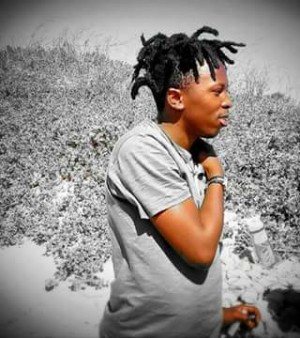 Unathi Slasha is a writer from Despatch, Port Elizabeth. His work has been published in several South African literary journals, namely: Ntinga, AERODOME, New Coin and Badilisha Poetry X-Change. He is a frequent guest poet/ lecturer at the NMMU first year Introduction to Poetry class. Together with Sisonke Papu, they have started Between Absence and Presence (BAP), a project that aims to create a space that not only celebrates reading but emphasises the practise of reading work that is unpublished. This stems from the knowledge that a lot of artists, writers especially, fully depend on external agents in order to share their work with the greater community. Apart from tweeting bullshit about the South African literary industry, Unathi is doing his MA in Creative Writing at Rhodes University
Unathi Slasha is a writer from Despatch, Port Elizabeth. His work has been published in several South African literary journals, namely: Ntinga, AERODOME, New Coin and Badilisha Poetry X-Change. He is a frequent guest poet/ lecturer at the NMMU first year Introduction to Poetry class. Together with Sisonke Papu, they have started Between Absence and Presence (BAP), a project that aims to create a space that not only celebrates reading but emphasises the practise of reading work that is unpublished. This stems from the knowledge that a lot of artists, writers especially, fully depend on external agents in order to share their work with the greater community. Apart from tweeting bullshit about the South African literary industry, Unathi is doing his MA in Creative Writing at Rhodes University
Twitter: BardSlasha
Facebook: Unathi Slasha


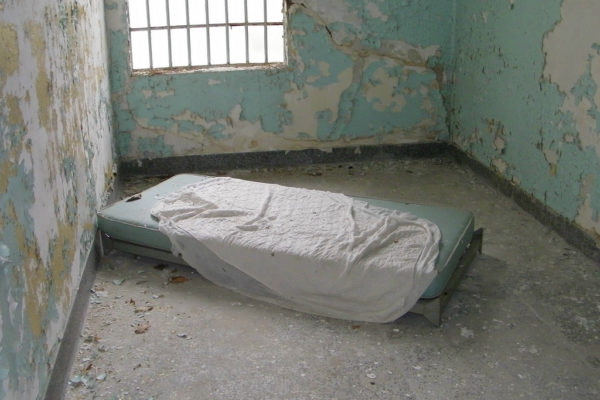

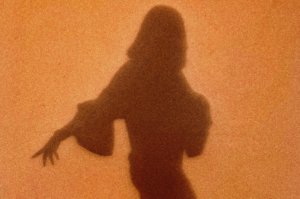
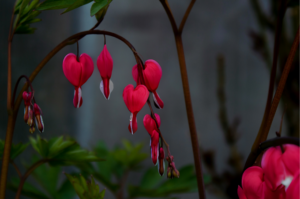
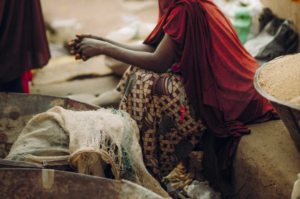
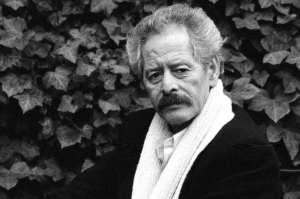
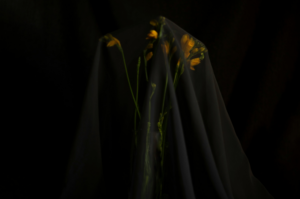

Siyanda February 20, 2023 11:50
I'll always revisit this peace. It is KAK funny.